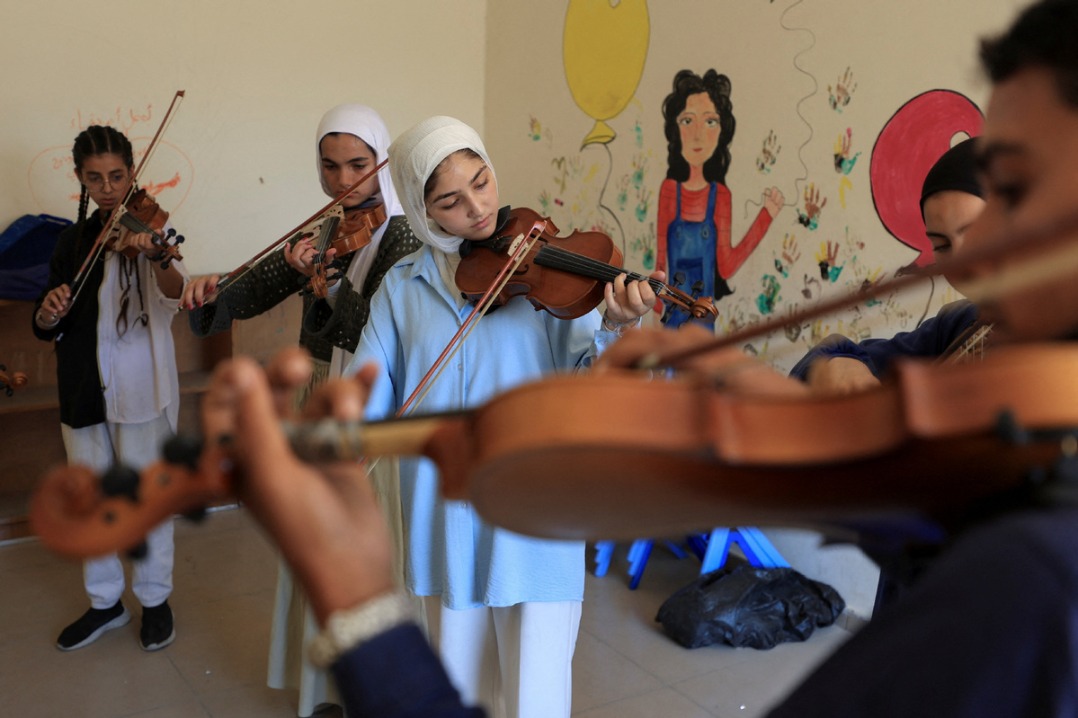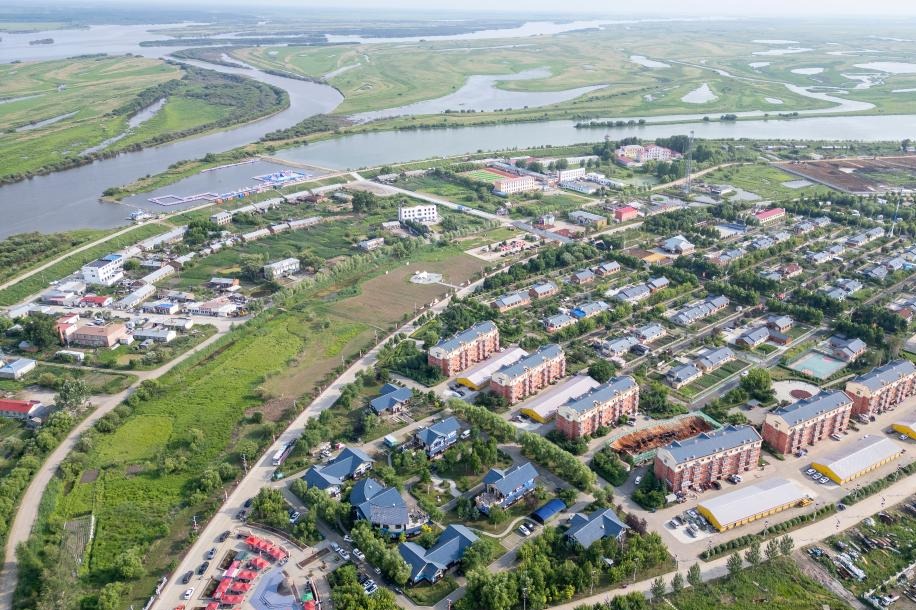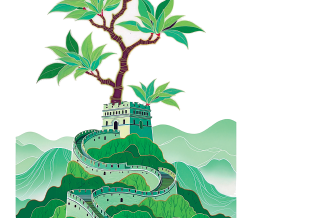May the flower of peace bloom across the world
How a Japanese military doctor planted the seeds of friendship


Every spring, the foothills of Zijin Mountain in Nanjing turn into a soft purple carpet. Tiny, delicate blossoms of Zijin grass, known as February orchid in Nanjing and radish flower in Japan, sway gently in the breeze, carrying a message of peace and remembrance.
In the spring of 1939, over a year after the horrors of the Nanjing Massacre, Japanese military doctor Yamaguchi Seitaro arrived in Nanjing. As he walked through the scarred streets, grief hung heavy in the air. Yet amid the devastation, a breathtaking sight stopped him: clusters of purple wildflowers pushing through the cracked earth, blooming defiantly.
Disapproving of the cruel war waged by his own country, Yamaguchi gathered 12 seeds of Zijin grass and brought them back to Japan — a silent protest, and a vow to honor life.
Soon after, Yamaguchi was dismissed from the military for his outspoken pacifist views. Returning home, he planted the seeds, nurturing them with memories of war and a yearning for peace. For two decades, he would take a train ride every year, scattering seeds along the tracks, and gifting them to schools, parks and neighborhoods. His family and neighbors also joined his mission. In 1985, his son Yamaguchi Yutaka took up the cause and distributed one million seed packets in eight languages at the Tsukuba International Exposition, fulfilling his father's dying wish: let Nanjing's flowers of peace bloom across Japan.
The melody of friendship
Music, where words fall short, keeps this story alive. Inspired by Yamaguchi's act, Japanese lyricist Ohashi Takako spent 10 years composing "The Story of Zijin Grass", a one-hour choral suite. In 1998, she founded the Japanese Zijin Grass Choir, uniting peace-loving people from all walks of life: teachers, students, homemakers, and World War II survivors under a simple motto: love flowers, love singing, love peace and love humanity.
The choir's message crossed oceans. During their 2001 Nanjing debut, over 200 members — some in wheelchairs — took the stage. Tears blurred both eyes on stage and in the audience, and the harmonies wove a tapestry of shared sorrow and hope.
In March 2025, more than 60 choir members — average age over 75, including three aged 88 — returned to Nanjing for the 13th time. On the 80th anniversary of the World Anti-Fascist War, they sang alongside the Nanjing Zijin Grass Children's Choir, whose members were in grades three to five. On stage, elderly Japanese singers clasped the small hands of Chinese children. Their voices, young and old, blend in Chinese and Japanese to honor the theme: remembering history, cherishing peace.
Peace is never the work of one generation. Since 2014, China has marked Dec 13 as the national memorial day for the victims of the Nanjing Massacre. It is not a day to stoke hatred, but to draw wisdom from the past and build a more peaceful tomorrow.
As part of the efforts to honor history, Nanjing Broadcasting Corporation has launched the Zijin Grass Campaign, which included public activities such as planting the flowers and distributing Zijin grass badges. "Time may dull pain, but rituals anchor memory," reads the campaign's preface.
To recognize foreign friends who saved Chinese lives during the Nanjing Massacre, Jiangsu province awarded international peace medals to the descendants of six heroes, including John Rabe and Robert O. Wilson. The medal's design also features Zijin grass.
A bond that endures
In 2007, 83-year-old Yamaguchi Yutaka returned to Nanjing on the 70th anniversary of the massacre. He donated 10 million yen (raised in Japan) to build a Zijin grass garden in the Memorial Hall of the Victims in Nanjing Massacre, a living prayer for eternal friendship between the peoples of China and Japan. Two years later, Japanese peace advocates added a bronze statue of a Zijin grass girl to the garden. The 1.17-meter-tall figure clutches a bunch of Zijin grass in her hand, and her gaze fixes on a wounded world.
Zijin grass thrives in shade and drought, even in barren soil. It is a perfect emblem for peace: resilient, persistent, and rooted deep in the hearts of ordinary people across China, Japan and beyond. Each spring, as those purple flowers burst into bloom, they rekindle the same wish — may peace and love endure.
The author is a current affairs commentator based in Beijing. The views don't necessarily represent those of China Daily.
If you have a specific expertise, or would like to share your thought about our stories, then send us your writings at opinion@chinadaily.com.cn, and comment@chinadaily.com.cn.


































